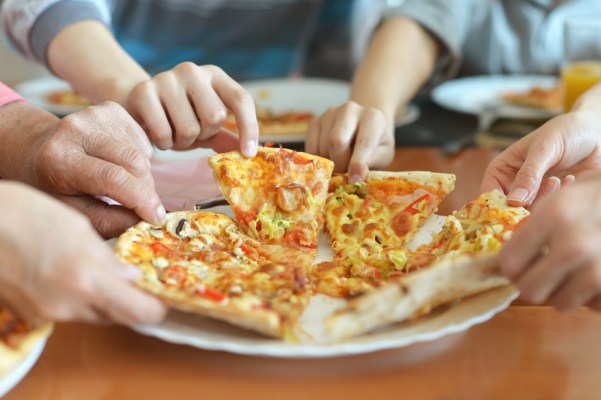Imagine the possibilities of a world in which we are able to make trusted connections between a near-infinite number of people. A world in which transaction costs, time and distance are reduced to almost nil. A world that is instantly available from a smartphone, anywhere, anytime.
This global revolution, enabled by databases, search engines and connectivity, has begun. It’s allowing mankind to break free from the limits of the past. We start doing what we do best: collaborating and sharing, at an unprecedented scale — a significant untapped potential for sharing is unlocked on a whole new level, creating value for all.
Thanks to platforms that connect peers and enable the creation of interpersonal online trust, individuals are suddenly empowered to share goods, knowledge, money, skills, network, content, etc. They regain their ability to contribute more directly to society and the economy, but on a global scale, redefining relationships between economic and social actors along the way.
We are at the dawn of a new era, the sharing age, which impacts all dimensions of our relationships with others.
Sharing goods
Access to other’s idle assets is resulting in a significant behavioral shift: people start favoring usage over ownership, avoiding the latter’s financial and practical constraints. Users share the usage of a good rather than owning it; in particular, when these goods are expensive and maintenance-heavy. Cars and homes are good examples, with platforms for peer-to-peer car sharing, ride sharing, home exchanges or short-term rentals.
Sharing knowledge
Wikipedia or MOOCs (Massive Open Online Courses) are democratizing access to knowledge worldwide, providing access to some of the best professors of our time to anyone online, anywhere and anytime.
Content can now be created collaboratively and knowledge shared without limits. Access to education will become universal.
Sharing money
Through crowdfunding and crowd lending, entrepreneurs, artists, students or anyone with an idea, in emerging and developed countries alike, can now be financed through investments, loans or donations made by private individuals who find their projects enticing.
Contributors are given the opportunity to be part of a project they are keen to support, and to have an impact. They share money, but they also share an experience, and give meaning to their investment.
Sharing time and skills
Anyone is now able to share their time and skills with others, in their neighborhood and beyond, thanks to platforms such as Upwork, TaskRabbit, Hopwork or Thumbtack. Regardless of one’s age or experience, individuals can share their time and talents on their own terms.
Sharing content
Distribution of licensed and personal content has been revolutionized. Why buy a film to put on your shelf when it can be available in the cloud anytime, anywhere? Thanks to the likes of Netflix, Spotify and Deezer, access is triumphing ownership at such a scale that it is redefining whole industries, a shift that was initiated by the 1999 P2P content-sharing tremor known as Napster. Personal content is following suit via Instagram, Facebook, LinkedIn, YouTube and Dropbox.
The arrival of the sharing age is a logical evolution from the disruptive innovations of the early 2000s, all of which are now allowing individuals to scale their network and gain access to solutions best suited to their needs. But the phenomenal growth and continued popular support of these models is better explained by the virtuous impacts of sharing.
The sharing age is creating new interactions between individuals from vastly different socio-professional, cultural or generational backgrounds; people who would never have met otherwise and who choose to share a ride. The perception of “the other,” of “strangers,” changes, and the circle of people you trust widens dramatically.
Sharing enhances our sense of purpose, increases our welfare and well-being and reduces our carbon footprint.
The optimization of resources inherent to sharing under-used assets is invaluable in tackling the environmental impacts of our consumption habits. Today, waste is no longer an option. And when goods can generate value from being shared, there is also a higher chance that we will return to higher quality, sustainable production patterns rather than favoring short-term disposable goods.
Sharing also allows an increase in purchasing power, as private individuals can monetize the use of their idle assets (for which no demand previously existed in the absence of peer-to-peer platforms) at a minimal marginal cost, allowing goods and services to be offered at low prices.
As Jeremy Rifkin, author of the Third Industrial Revolution and The Zero Marginal Cost Society, puts it: “We had never anticipated the possibility of a technological revolution so extreme that it could reduce marginal costs, for a large number of goods and services, to practically zero, making these goods and services virtually free and abundant.”
These advantages have true impacts on users’ quality of life. In the case of BlaBlaCar, the obstacle of distance is removed. Mariem, one of our Spanish members and an MBA student in Seville, uses BlaBlaCar to bring her closer to her fiancé, who lives 300km away. Another member, Thierry, works 250km from home and is able to see his daughter more often, thanks to an affordable travel solution that would not exist if it weren’t for the power of sharing between millions of members across the globe.
Everyone is invited to share and discover “others” under a new light. Sharing enhances our sense of purpose, increases our welfare and well-being and reduces our carbon footprint. Put simply, sharing is living.
